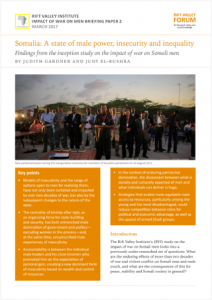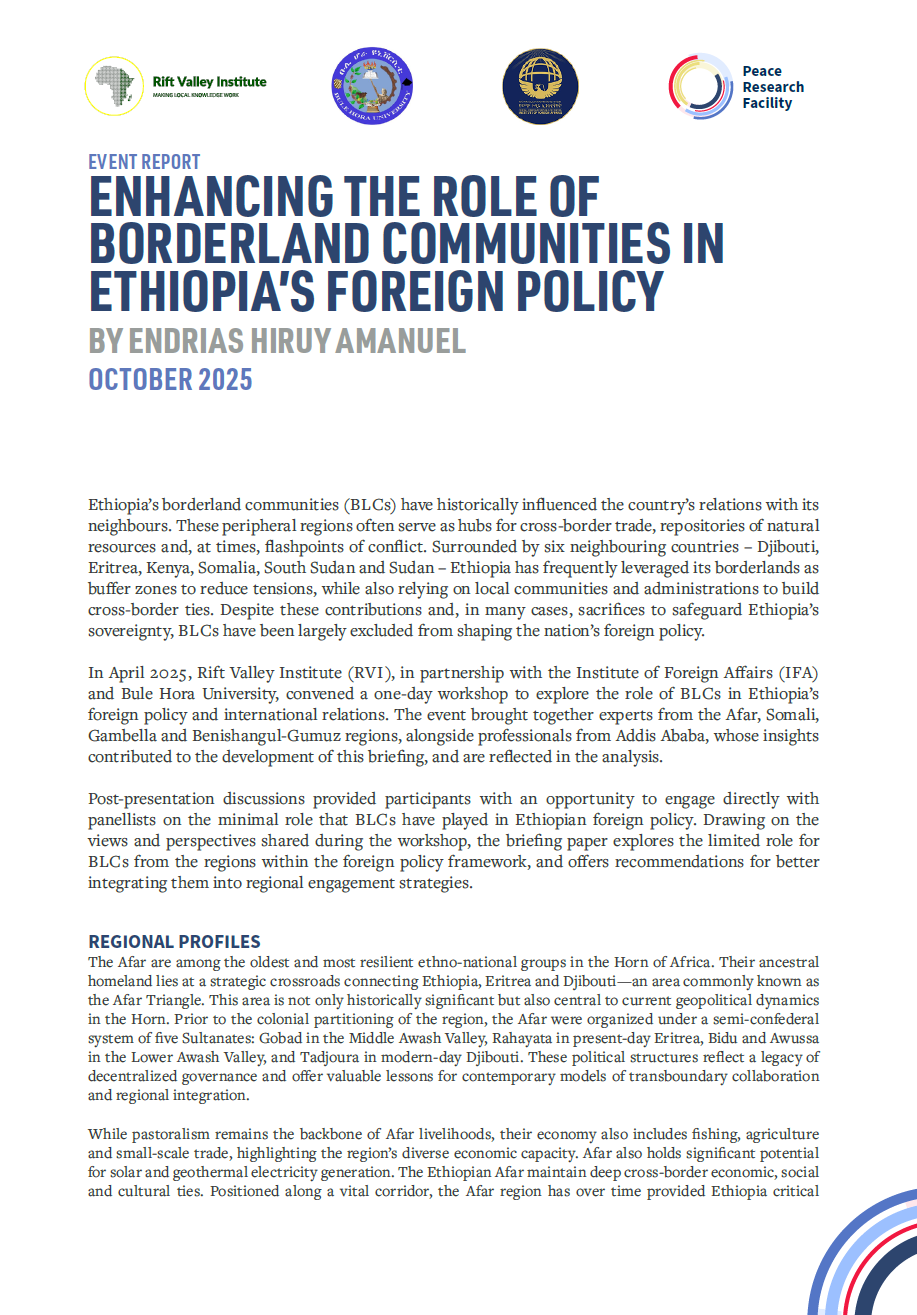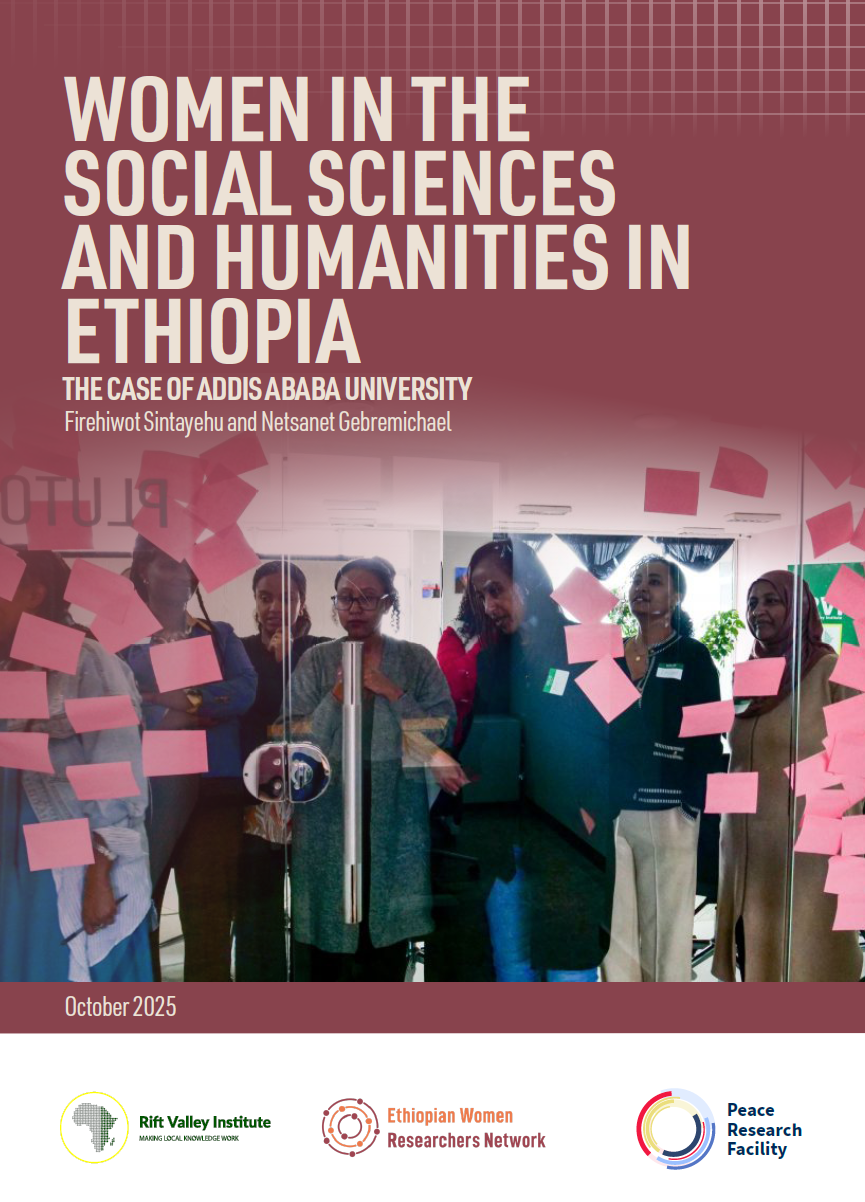The Rift Valley Institute’s study on the impact of war on Somali men looks into a previously under-researched set of questions: What are the enduring effects of more than two decades of war and violent conflict on Somali men and male youth, and what are the consequences of this for peace, stability and Somali society in general?
The project’s inception phase charted what it means to be male in the Somali regions today. The study’s findings describe power relations between men, notably between younger and older men, men from dominant and from minority ethnicities, wealthy and poorer, settled and displaced, and men within different regions. These gendered male relationships and their management—inextricably linked to and sustained by kinship and clan—are intrinsic to Somalia’s day-to-day politics.
This briefing paper is the second RVI briefing disseminating the research findings to date. Its particular focus is the relationship between male power and its disempowerment since 1991, inequality, and current forms of leadership and governance. The paper highlights the relevance of these findings for policy-makers in Somalia concerned with stabilization, state-building and the momentum behind violent extremism.
Some 400 men from south-central Somalia, Puntland, Somaliland, and Dadaab and Eastleigh in Kenya took part in the inception phase research, contributing their experiences, life histories and reflections. Around 90 women from the same areas also offered their perspectives. Many men told researchers that this was the first time they had been asked to tell their side of the story




